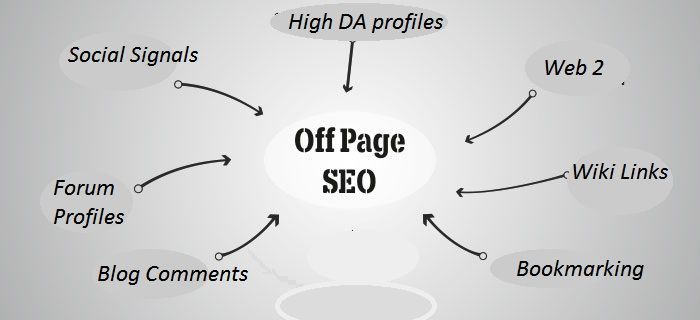
Technical SEO Optimization
Welcome to the world of Technical SEO Optimization! If you're a website owner or just someone who wants to make their online presence known, then this is the blog post for you. In today's digital age, search engines play a crucial role in driving traffic and generating leads for businesses. However, without proper technical optimization, your website might be invisible to potential customers. Don't worry though- we've got you covered with our comprehensive guide on everything you need to know about Technical SEO Optimization. So sit back, relax and get ready to boost your online visibility!
Understanding Technical SEO and Its Impact
Technical SEO is the practice of optimizing a website for Google’s search engine algorithms. It is a subset of SEO that focuses on improving the technical aspects of a website so that it can be better indexed and ranked by Google.
Technical SEO includes optimizing the structure and code of a website, as well as optimizing its content for specific keywords. By improving the technical aspects of a website, Google can more easily index and rank it in their search results.
The goal of technical SEO is to improve the visibility and organic search traffic of a website. By making a website more visible and accessible to Google, businesses can increase their chances of appearing in the top search results for their targeted keywords.
Technical SEO can have a significant impact on the visibility and organic search traffic of a website. By improving the technical aspects of a website, businesses can increase their chances of appearing in the top search results for their targeted keywords.
Website Speed Optimization and Performance Tuning
Websites are faster than ever before, but they can always be faster. Speed is a ranking factor for Google and other search engines, so it's important to make sure your site is as fast as it can be. There are a number of ways to optimize website speed and performance, including caching, minifying resources, and using a content delivery network (CDN).
Implementing Structured Data and Schema Markup
When it comes to technical SEO, one of the most important optimization techniques is implementing structured data and schema markup. This allows search engines to understand the content on your website and provide better results for searchers.
There are a few different ways to implement structured data and schema markup on your website. The first way is to use embedded code snippets. These are small pieces of code that you can add to your website's HTML code. Google provides a tool called the Data Highlighter that can help you generate these code snippets.
Another way to implement structured data is through using a Content Management System (CMS). Many popular CMSs, such as WordPress, have plugins or modules that allow you to easily add structured data to your website. You can also use third-party tools like the Schema Markup Generator from Merkle | RKG.
Whichever method you choose, it's important to test your implementation using Google's Structured Data Testing Tool. This will help you identify any errors in your implementation so you can fix them before they impact your website's traffic.
XML sitemaps and robots.txt optimization
Both XML sitemaps and robots.txt files are important for technical SEO optimization. XML sitemaps help search engines index your website properly and can give you an edge in the SERPs. Robots.txt files help control how search engine spiders crawl your site, which is important for preventing them from overloading your server or missing important pages.
To properly optimize your website for search engines, you need to make sure both your XML sitemap and robots.txt file are up-to-date and accurate. You can use a variety of tools to generate or update these files, but it's important to double-check them before you upload them to your server.
Including an XML sitemap on your website can give you a significant advantage in the SERPs. If you have a large website with multiple pages and posts, an XML sitemap can help search engines index your content more thoroughly. In addition, an XML sitemap can be useful if you have recently made changes to your website or added new content. By submitting a new sitemap to search engines, you're telling them that there's new content on your site that they may not have seen before.
A well-optimized robots.txt file is also important for technical SEO. This file tells search engine spiders how they should crawl your website and which pages they should index. If you have a large website or one with complex navigation, it's especially important to make sure your robots.txt file is properly optimized so that search engine spiders can find all of your content.
By optimizing both your XML sitemap and robots.txt file, you'll be able to ensure that search engines properly index your website and have access to all of your content. This will help you get the most out of your SEO efforts and improve your ranking in the SERPs.
Mobile-Friendliness and Responsive Design Considerations
As more and more people use mobile devices to access the internet, it's important that your website is optimized for these users. This means ensuring that your site is mobile-friendly and responsive.
There are a few things to keep in mind when it comes to making your site mobile-friendly:
- Use a responsive design: This means that your website will adjust to fit the screen size of the device it's being viewed on. This is important because it makes for a better user experience and can help improve your search engine ranking.
- Use large font sizes: Make sure that your text is easy to read on smaller screens. Mobile users shouldn't have to zoom in order to read your content.
- Optimize images: Be sure to optimize your images for faster loading times on mobile devices. This can be done by using smaller file sizes and appropriate file types (such as JPEGs).
- Use concise, scannable content: Mobile users are often looking for specific information quickly. Keep your content short and to the point so that they can easily find what they're looking for.
Fixing Common Technical SEO Issues
There are a number of common technical SEO issues that can impact your website's ranking and performance. Here are some of the most common issues and how to fix them:
1. Broken links: Check your website regularly for broken links and correct them as soon as possible.
2. Slow page loading: Optimize your website's code and images to reduce page loading times.
3. Duplicate content: Avoid publishing duplicate content on your website by using original content or by properly canonicalizing your pages
4. Poor mobile optimization: Make sure your website is optimized for mobile devices by using responsive design or a separate mobile site.
5. Lack of HTTPS: Secure your website with HTTPS to ensure that all data is encrypted and secure.
By fixing these common technical SEO issues, you can improve your website's ranking and performance in search engines.
Technical SEO optimization is an essential part of any digital marketing strategy and can help you improve your website’s visibility in search engine rankings. By understanding the technical elements that go into optimizing a website, marketers can better understand how to optimize their own websites for maximum results. Taking the time to audit your site and make sure all of the necessary components are present and functioning properly will ensure that you get the most out of your SEO efforts.
Marketing Baristas
We are the premier digital marketing solution in Itasca, IL and surrounding suburbs of Chicago. Contact us today to get your free, no-obligation consultation!
Get In Touch
1925 Cherry Lane,
Northbrook, IL 60062
United States









